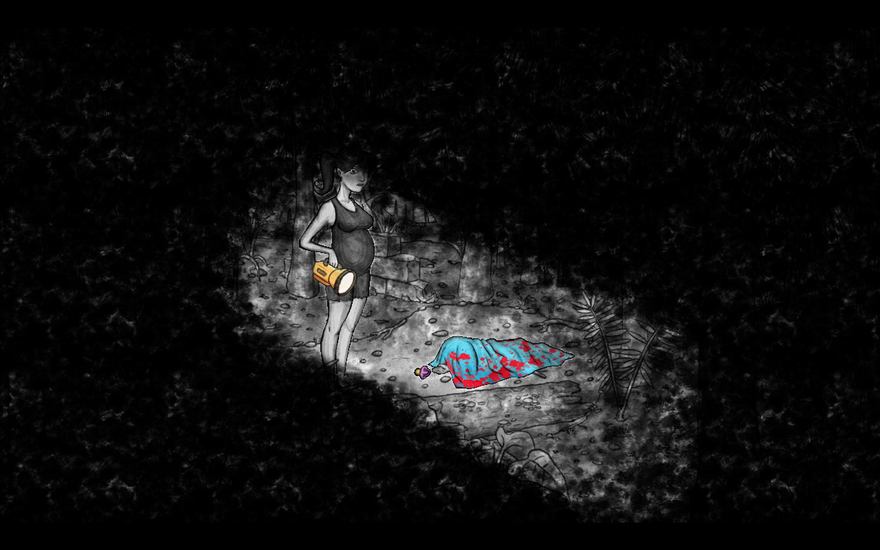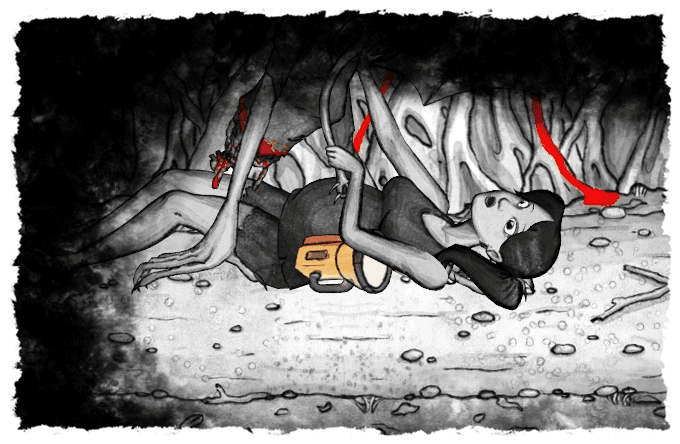For the past few years, dads have been the talk of the videogame-town. The Last of Us, Red Dead Redemption, Dishonored, Heavy Rain, BioShock, The Walking Dead—all are part of something that has become known as “dadification,” in which aging game designers extol their anxieties about fatherhood through grizzly “matoore” (mature) gaming narratives.
There’s a lot to be said about dadification. Unfortunately, there’s not a lot to be said about the momification of videogames because, by and large, the maternal side of parentage (you know, the person who physically pushes new life out of her goddamn body) has gone all but ignored. Sure, there have been a few moms in games. But usually, they don’t even get to have a name. She’s just “mom:” not an individual with specific fears and strengths and needs, but a concept. A symbol for home that designers often exploit for cheap feels, recalling players back to a simpler, sweeter time outside the dark and dingy “reality.” And when motherhood isn’t getting pigeon-holed into a domestic symbol, she’s practically non-existent, implying a world where babies spring fully formed from the ground—or, better yet, from the head of a father figure.
Of course, some videogames—like Portal and Child of Light—imbue their stories with refreshingly nuanced perspectives on mother-child relationships. But when you consider just how many videogames portray fatherhood with so much generosity—giving every paternal figure his very own narrative and the privilege of a deeply contradictory (meaning human) characterization, depicting him as both heroe and anti-hero, selfless and selfish, destructive and loving—you begin to notice that the stacks don’t add up.
Especially when you take into account that, according to a 2013 ESA survey, nearly three out of every four mothers (74%) in the U.S. plays videogames, as well as the 2014 survey which stated that the largest gaming demographic is adult women. Mothers play games, just like fathers do (if not more). So where are gaming’s harrowing mother journeys (don’t you dare say the name Samus Aran)? When will mothers get the chance to tell their stories as playable, complex characters?

Infinitap Games’ upcoming psychological horror game Devastated Dreams (a spiritual successor to Neverending Nightmares) doesn’t just have a (sometimes pregnant, sometimes not pregnant) mother for a protagonist. It’s also a game with a story that understands motherhood, like fatherhood, isn’t all about the warm fuzzies and heartfelt exchanges. Motherhood, like fatherhood, is fucking terrifying.
While the studios last horror game, Neverending Nightmares, dealt with creative director Matt Gilgenbach’s OCD, this entry explores a different kind of living hell. “My wife and I are expecting our first child, and it’s actually been quite terrifying,” reads the game’s dev blog. “I’m not sure I can really describe how terrifying it can be—how powerless you feel to protect something you love so much that at least at the beginning—is a formless blob. Some pregnancies aren’t viable, and that is a terrible cloud hanging over the excitement of bringing a new life into this world.”
Yesterday, Infinitap Games launched Devastated Dreams‘ Kickstarter campaign along with a free demo. Though the gorgeous grayscale aesthetic carried over from Neverending Nightmares, this new installment aims to tell a more active and clear narrative arc. You play as a young Filipino woman named Angel, who finds herself trapped inside a hellish dreamscape in which she must constantly outrun folkloric monsters.
“The monsters are pretty twisted,” Gilgenbach admits. “Most prey on children born and unborn, which makes them the perfect manifestation of fears for someone expecting a child.” Devastated Dreams will not only center around the marginalized motherhood narrative, but also serves as a deep dive into a variety of Filipino cultures and landmarks like the rural area of Aklan in Western Visayas. Exploring everything from their complex mythological traditions to the Philippines’ real life battle to recover from the 2013 super typhoon Yolanda, Gilgenbach hopes to give a snapshot of this culture’s unique blend of magic and realism in everyday life.

Though the demo is short, it makes an impact from beginning to end. Following in the footsteps of its predecessor, Devastated Dreams often employs evocative yet subtle imagery to convey narrative. It tells a story that’s not only captivating, but long overdue: of a mother who’s equal parts super hero—soldiering through traumatizing hallucination after traumatizing hallucination—and equal parts human. Angel tires quickly from sprinting, her breathing coming in heavy, her belly appearing fit to burst. But she goes forward into darkness anyway, where creatures prowl and her unborn terrors lie in bloody, motionless heaps on the floor.
You can try out the demo for yourself and donate to the Kickstarter here.
